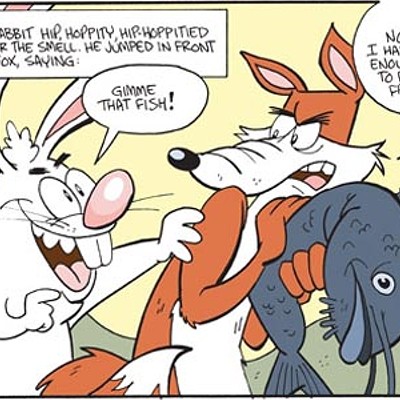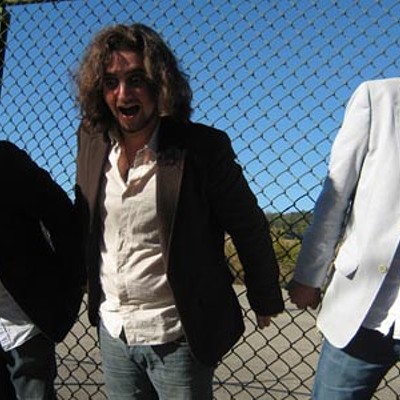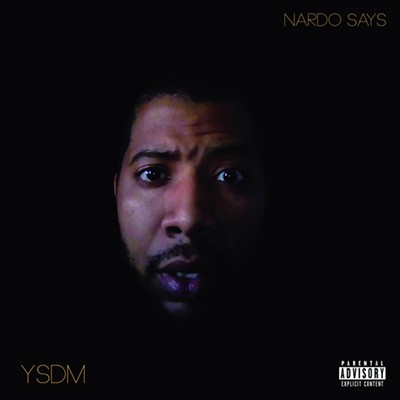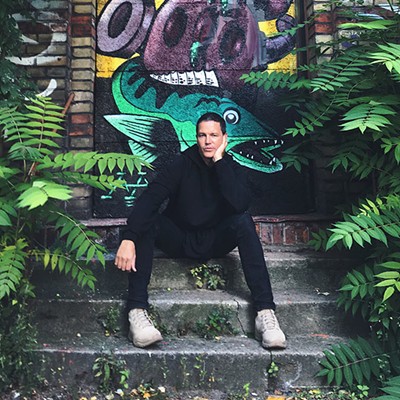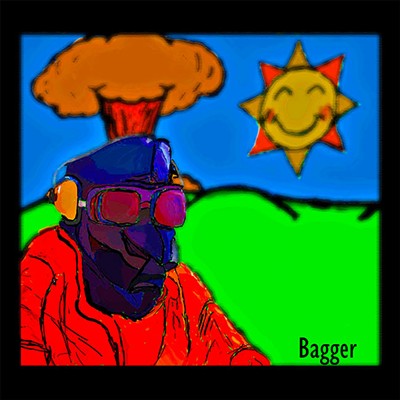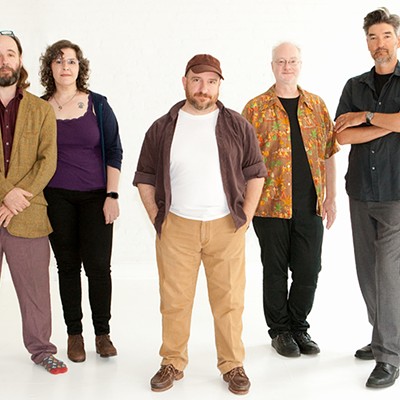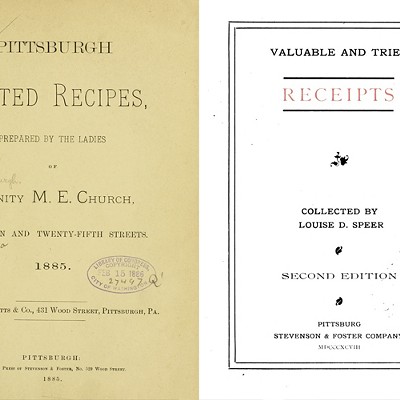Thursday, July 22, 2010
More with Josh from Meeting of Important People
Sometimes you do an interview and it's kind of long, but good. And you only have 750 words of room in the paper, so you have to cut the interview down -- plus there's the matter of making the interview fit some kind of arc that will actually make sense in that space. But you know that the interview is a fun and interesting read in its entirety, or at least in a less abridged version.
So, you put it online, where there is an infinite amount of space.
That's what I'm doing with my interview this week with Josh Verbanets of Meeting of Important People. The edited version that ran in the paper is here, along with the release show(s) information. The mostly uncut version follows.
Tell me about the new record. How did you hook up with Authentik Artists?
I remember telling you specifically [at the time] – “I'm going to be really annoying and keep telling you about [the self-titled LP], and tell lots of people about it, not because it's that great but because we did it, it's done.” I contacted so many people about it – some people I'd met in previous bands, some people of actual “importance,” some just friends. They heard a couple tracks from the record and got in touch with this really cool distribution deal – meaning they have nothing to do with the physical record, but they control the digital domain. And it was a great deal. It was amazing. The head of the label, Scott Austin, was the head of Madonna's label, Maverick, in the mid-'90s, which went under. It's a small label and they've been incredibly supportive, and they've been into every idea we've had. They're not a really “cool” label of any prestige, but they've done quite a bit, but they've helped pay for us to make records.
It's hard to call them a label – they don't have ties to traditional media and they don't have anything to do with physical distribution. They're just really energetic former music executives who really like to hype music online. They have tie-ins with iTunes, they got us featured on iTunes.
Do you think that's a satisfactory route to go, at this juncture, with the business being what it is – is that the meat of what a band really needs?
I think it's great because we've been able to live several lives at once. On one hand we've been able to appear like a modern pop band, where they've hyped us on blogs, put glossy photographs of us up, made us look like a glossy modern Pitchfork band. That hasn't really worked for us, because the kind of music we have isn't really experimental enough to fit in with that. But it's been great because they've gotten some really great placements for us. As you know, one of the only places people find out about music these days is through song placements, and they've gotten some incredible song placements for us.
We've been able to live a dual life of doing that and also being a band that travels, we've played a good 30 to 40 shows out of town, and plays to people what appears to be kind of throwback garage rock. We played with The Cynics and people loved it. When we play with a modern indie band – when we open for an OK Go or David Bazan or whatever, people don't really care. It's when we play a garage rock bill where people want to talk about old Alice Cooper bootlegs that it really seems to work.
You've been doing the model of going out for a weekend, rather than touring.
Yeah. We've played regionally. And the reason that we've done that – it's not because we're lazy or anything like that. It's that the stuff we do doesn't seem to fit into any clear genre. It's really difficult – like, a pop-punk band, a pop-punk listener will immediately say, I recognize these inputs and this distortion and this way of singing and I'm into this. There's nothing about this that tells you to like it. Because it's just some goofy little songs. We've done the weekend trips because we love to play and we like to give our music away. But I'd say it hasn't done very much for us. We played Northampton, Brooklyn, Columbus, Cincinnati, all the way to Wisconsin, we played Madison, we played Chicago, Philadelphia, Morgantown. Those kinds of regional things. Nothing more than 5 to 8 hours away.
But you've got a pretty significant local following. You might not fit into a subgenre or “scene,” but you fit into a scene on a personal basis here.
Totally. My whole life, I rallied – when I was in my early 20s starting to play, I hated all of those bands that had their friends, just 200 of their friends would come out, I hated it, it made me so mad. “Just because you were on the soccer team in high school, now all your buddies come out --” know what I mean? Then I find myself – the Lohio thing was such a positive thing, it did turn into a little scene. It turned into that thing I always made fun of, when we started playing in Lohio; I don't know why, but it reached some little critical mass where WYEP was playing the song, so enough of the public knew about it, and friends would come and it was just a nice thing, to be in your mid-20s and to come out and see your friends. So I realized the thing I always thought was negative was actually really positive.
One thing I've been curious about is “The Jesus Song.” I know some of you are Christian, some of you maybe less so – what degree of sincerity of irony is involved, or does it matter, does it transcend that?
The only person in the band who's religion is [bass player Aaron Bubenheim]. We're not outing him in any way – he's always defined himself as a Christian. But that has nothing to do with our music, with our band, with our friendship. It's something he's embraced a lot more in the past few years, and it's a pretty significant part of his life. “The Jesus Song” was written by me, as a little bit of a reaction to Aaron – to me, the idea was to write a song that was really impassioned. I wanted to write a song that would lay out a straight gospel song lyrically. Of course there's something about doing drugs, there's something about “shooting up hymns” in there, but basically to me the idea was just, could I write a gospel song that could be taken either way? There's that thing where – the snide kids are going to say “This is awesome, they're making fun of religion,” and the religious kids are going to say “This is interesting, they're making a real call” -- for me as a songwriter, it has nothing to do with that. It's just a character singing an impassioned song. It was inspired, I'd say, just from what was on my mind from discussions with Aaron. And if you lay it out, it's really similar to what a “real” religious song would look like.
Is that what your approach to songwriting here was like – picking a character, a perspective, writing a song based on that?
This one, definitely more – the last album was songs kicking around and we got together and recorded them. You hear these words all the time, so I don't even want to say them, but: this is more of a band record. We did it together. I'll try to get off of that.
Two of these songs are really old. The two in the middle, “Leap the Dips” and “They Love Me In the City,” I wrote when I was probably 19, but they seemed to fit with this stuff. Each song has a specific voice, a specific character. There's less “silly” than the last record. Plus, to me it's less annoying. For example, the first song – it started because I wanted to write a song cycle about an amusement park. I love old amusement parks. I wanted to write a concept record, as silly as that is, where every song would be about a different aspect of the park over the day. So the first song was going to be “Training Song,” and it was the owner of the park telling the employees who not to let in that day: “Don't let anybody with a chain wallet,” know what I mean? It turned into a song that was basically like any employer telling you who not to let in. They're all kind of that. And little references – “Leap the Dips” is about a roller coaster in Altoona, stuff like that. It's pieces of an aborted concept record.
You could probably revisit that with some grant money from someone. The American Coaster Enthusiasts.
ACE! I was a member for a while. That's my big nerdy thing. Old roller coasters.
You picked a cover, “Come On Down To My Boat” (by Every Mother's Son). Why did you choose that, and are you going to get sued?
We're not going to push it nationally. That's not going to happen. I'm just being realistic – we're not in a place where we're going to go out and play seven million shows. If Authentik Artists places one of our songs in a Coke commercial and suddenly people love us and want us to come play, I'd love that, but for me – the idea of this record was just to make something that sounds more like our live band, it's short, and just give it away, to people who come out to see us around Pittsburgh. If something nice comes of it, that would be great. If not, no problem.
When it comes to “Come On Down to My Boat” – we only pressed 500 CD's. And our label isn't putting out this cover. The cover's only on the disc. The label's putting out four or five bonus songs, some demos that we did. They're putting that all on iTunes. We're just putting [the physical CD] out as our version of the record.
The song's great – it used to be on 3WS when we were kids. We recorded it because it's the creepiest – it uses the most violent imagery. He's talking about cutting her loose with his knife; it doesn't sound like a very nice way of asking a girl out. It sounds like he wants to abduct her into international waters.
Tags: FFW>>


